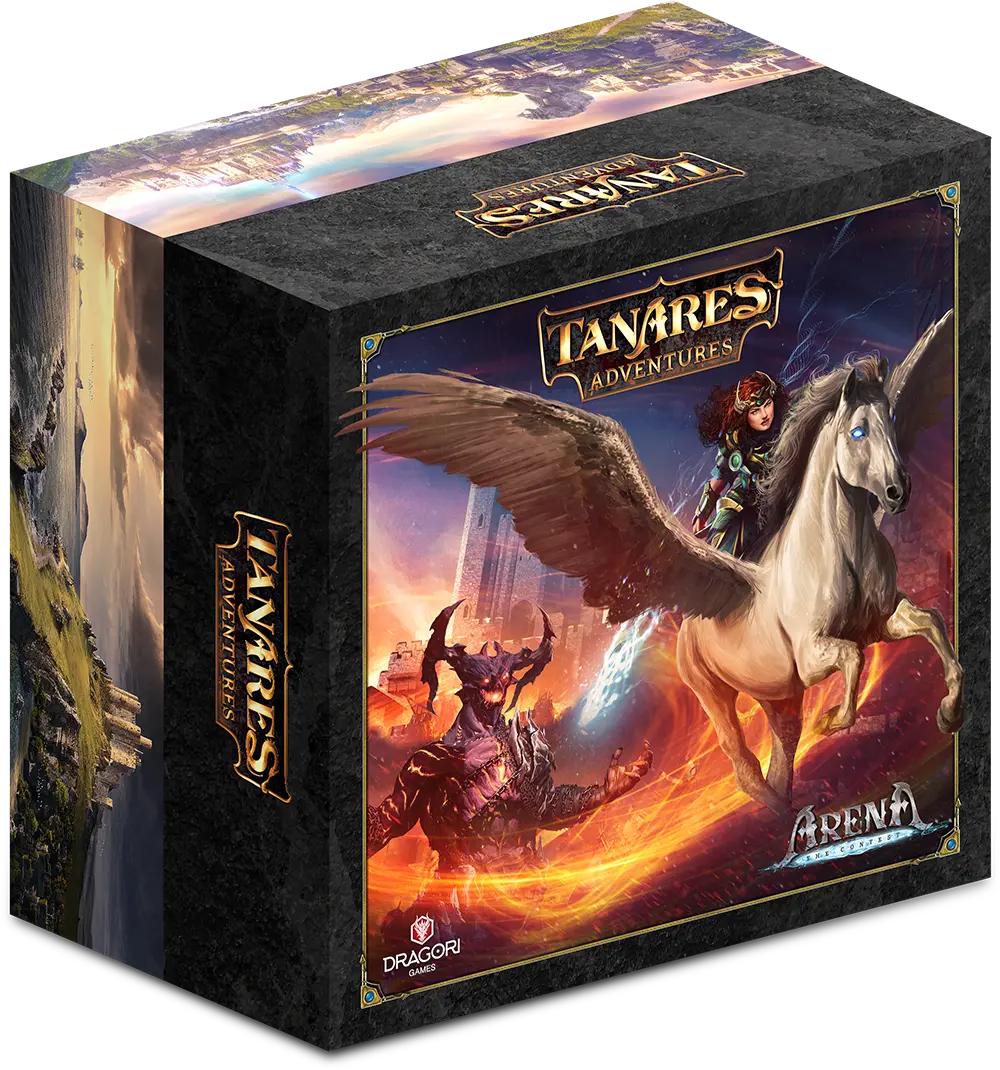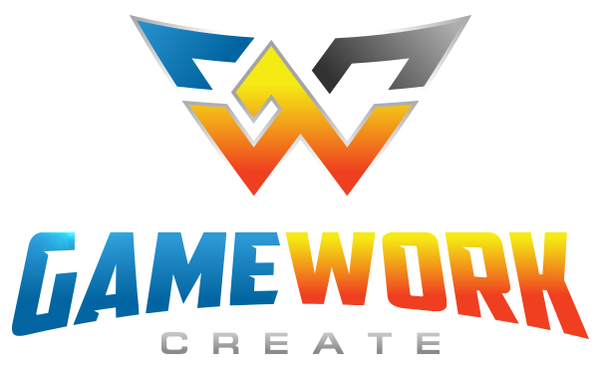Dragori Games
Arena the Contest: Tanares Adventures with PAINTED Madness Box Version
Arena the Contest: Tanares Adventures with PAINTED Madness Box Version
Couldn't load pickup availability
Tanares Adventures is the massive expansion for Arena: the Contest. With more than 40 miniatures and 70 different types of villains, it takes the cooperative campaign content beyond 100 hours of unique gameplay, and adds a new Combat Role to multiply the possibilities in PvP and Co-op matches, now in a semi-open world, where players can consult an Adventure Map and decide where they want to go next, instead of being linearly directed by the story.
The Campaign now runs in Cycles, each with three phases: City Phase, Journey Phase, and Quest Phase. All your decisions matter and significantly impact the Quests’ gameplay, modifying even the circumstances of the multi-part epic final mission, and determines the Boss (or Bosses) you might face, in an exciting campaign with multiple endings.


Tanares Adventures does not come with a separate Rulebook, but rather a "Learn as You Play" Chapter of Introduction in the Campaign Guide. Alongside the Core Box's Rulebook, that will be enough to cover all you need to know to play the game.
What follows is a simplified explanation on the three Phases around which the Campaign in Tanares Adventures develops (Journey / Quest / City Phase).

The Journey Phase is not the beginning of the Campaign, but rather the start of a cycle that ends in the City Phase.

When you decide to end the City Phase of the previous cycle, simply take a look at your Adventure Map, or consult the Story Log for incomplete regions you have discovered. You will have many options at your disposal, and different reasons to visit each location.
This means you will make your own adventure, instead of following a linear story where one quest necessarily comes after the other.

Once a Quest has been chosen, both the Adventure Map and the Story Log point you to a page of the Campaign Guide where its Prelude takes place. It develops the main story, in relation to your choice of adventure. This Prelude may sometimes require you to draw a Journey Card, with a situation that is solved in the Journal.


Quests are not a brainless hack-and-slash in which you throw yourself into unknown perils and hope for the best.
In real life, the strongest and most intelligent person in the world cannot succeed, say, in a bank heist, without knowledge about escape routes/methods, the security systems in place, pattern of police response, location of the safe, how to crack it. They would also need allies and tools. For the same reason, save exceptional circumstances, your Heroes cannot simply dive into a quest without adequate preparation.

This does not mean you will know everything that can happen in advance: important encounters and events (and even a few missions) cannot be foreseen, and you will have to make tough decisions on the fly. Besides, we have many surprises in store for your Party, both in and off the board...

A spoiler-free example of the decisions you might have to make while assigning task(s) to an Asset (read more about Assets in the City Phase). Should the Asset seek an alternate entry point to the Palace (1)? Try to lure the tigers away (2)? Distract the guards that patrol the main entrance (3)? In which order should these tasks be performed? Who (which Asset) would you trust to perform them, considering their particular skillset, and that you may use any Asset you have unlocked thus far (but only one of them)?

All the basics of playing a Quest can be seen in the Rulebook/How to Play video, further down below, in the Arena: the Contest Game Overview. In this section, you can see most of the NEW FEATURES in Quest Gameplay.

In Tanares Adventures, we wanted to increase the “dungeon crawling vibe,” and one of the things that most sets this atmosphere is not knowing what lies ahead, both in enemies encountered and in rooms explored.

With a plethora of 70+ different villains (to be stretched!) and random encounters, where villains are determined by drawing their cards from a random deck that is unique for each Quest, you may play the same quest dozens of times and never know precisely what you will face.

Quests are also made unique and varied by the Room Tiles, big sections of dungeon you place over the standard battlegrid when you trigger an event (like opening the door to the room). Not only their looks are random, but what you may find inside them: specific enemies? Chests with loot? A shortcut to another section of the scenario?

Board Tiles are like Room Tiles, but bigger, and many times more interesting, as they can be placed outside the battlegrid, as a special extension.
You will often find yourself exploring them in special events, like opening a secret passage, during a Treasure Hunt, as an underground level to some dungeon, exploring a special room, etc.

Random encounters and Room/Board Tiles are not the only feature that bring variety to Quests. Story Facts often change how you will play a Quest:
- Have you allowed an enemy to live in Quest 9? Perhaps they will appear again in Quest 10;
- You obtained a strange key as the reward of a Journey Card? Perhaps you can open that locked door in Quest 10;
- Did you decide to play Quest 12 before playing Quest 10? Perhaps you have fewer Rounds to accomplish your objective now, because you are short on time;
- The explosion at the end of Quest 10 sent an avalanche of rocks down the mountain? Perhaps one of the starting points to Quest 11, the cave entrance, is no longer available.
Quest Modifiers are visibly signed throughout the Quest Instructions and are listed beforehand, so you will only have to check your Story Log once, during preparation. Most times you will not know exactly what impact (if any) a Fact may have on a Quest.

Another element that increases the dungeon-crawling vibe while slightly decreasing the hack-and-slash are the events, interactions and skill checks found during quests.
These are brief interruptions in the action, when players (and Heroes) must solve some situation, usually involving decision-making. Examples include:
- You’ve sprung a trap! Who will throw itself in it to save the teammates, and what actions will the others do to disarm it?
- You’ve found a strange statue with a puzzling inscription blocking your way. How will you interact with it to continue the quest?
- You’ve rescued an NPC, but your mission is not over. Interrogate the NPC and learn about what might be coming your way at the end of the quest.
- You’ve triggered an event that ends the first part of the quest, on the first floor of a location. Solve a series of problems before you begin the second part, which takes place in the underground basement. These decisions may impose modifiers to the second part.


The main aspect of designing the City Phase was allowing it to have a flexible duration. You can make it end in one minute if you want to jump right to the action, but it also has a bundle of different options, if you want to take your time before the next Quest.
Let’s take a quick look into some of its activities:

When returning from an exhausting and dangerous journey, you must bathe (or not), eat (or drink), and recover from your wounds (or die). All changes inflicted on your team end, except for the rare permanent ones.
When you rest/sleep in town, the hard lessons learned in your recent adventures become knowledge, experience. You Level UP.

Finally, the loot obtained in your missions may (or not) be exchanged for items that can make the next quests easier. Resources are not abundant, so you should carefully plan, alongside your party, how they are going to be spent.

The City is an environment with its own set of particular challenges. Engage in sidequests (including some multi-part epic stories developed through multiple City Cards), get to know some NPCs, and more.
For example, perhaps you will solve the mystery of the Weapon Shop, where items seemed to be disappearing, and that will unlock new items and perks at the store? Maybe you will discover the location of a secret dungeon? Or skeletons in an Asset’s closet? Obtain a Treasure Map that seems to point to a particular room of a dungeon? Who knows what can happen, and in which ways the City will forever change due to your choices and actions…

Every story that can be skipped or might happen in one of several different ways (like the ones initiated by City/Journey Cards) develops in the Journal. Over one thousand paragraphs and alternatives to choose from, in situations you will want to carefully debate with your party.

Assets are an NPC help to your party, which can come in many different ways.
For example, say that, as the result of a Journey Card, you discovered a new dungeon, in a cave by the Snow Mountain, and found some papers that refer to the “Snow Mountain Prophecy Song.” You can consult one of your Assets during the City Phase, asking for more information about the Prophecy Song, which may unlock Story Facts that modify the discovered quest.

As you continually visit an Asset, your relationship with the character progresses, unlocking new Facts, items, exclusive storylines, and special endings.
Assets have different areas of knowledge and expertise, which influence the information you get from them or the result of tasks assigned to them in the preparation for Quests.

These sheets are well-organized pieces of paper that allow you and your party to keep track of your current team status and events that happened in your campaign.
The notes you register in Team Sheets change often, according to the items you obtain/buy/sell, XP you earn/spend, etc.

Records in Story Logs are permanent, as you cannot “lose” an unlocked Fact or “forget” a discovered region. You should only erase the Story Log (or begin a new one) when you start a new Campaign.
Should you forget how a Fact was unlocked, they are followed by a number that takes you to a specific paragraph of the Journal, where the Fact is explained and contextualized.

Every Quest you beat may reward you with a special RELIC, an artifact that initiates a puzzle-oriented sidequest, should you decide to investigate it.

The difference between the “relic” above and the ones acquired in Tanares Adventures is that, if you don’t like puzzles, or if you want to play a sequence of Quests as fast as possible, the vast majority of relics obtained in the Expansion may be ignored.
Finishing a Relic sidequest may give you important rewards, Facts, and/or information, but you don’t have to stop the flow of the story and/or action to solve the Relics mystery. This is an optional step of the City Phase.



Share


